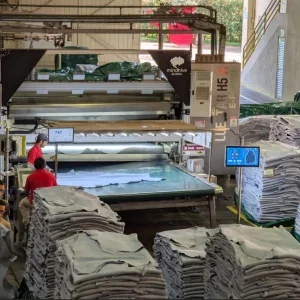It is becoming more and more important to consumers that the leather they love is produced in a sustainable and safe way. But, when it comes to environmentally friendly production, the leather industry is still in its infancy.
With the Sustainable Textile and Leather Production Certification (in short, STeP), which will be launched from 1 April 2019, OEKO-TEX® is taking a huge step towards environmental protection and sustainability, also in leather processing. Until now, certification according to STeP by OEKO-TEX was only available to producers within the textile supply chain. Following a three-month transition period, the new OEKO-TEX regulations will come into force definitively from 1 April 2019.
“The demand for articles that have been tested for harmful substances and which have been manufactured in a sustainable and socially fair way is increasing – also with regard to leather articles," said Georg Dieners, OEKO-TEX General Secretary. "Consumers quickly learn that their buying decisions have an influence on their families and our environment. Brands, retailers and manufacturers must be equipped for this awakening and with STeP we can offer them an ideal tool to do so."
Certification according to STeP by OEKO-TEX is possible for production facilities at all stages of processing: from the beamhouse to the tannery to finishing and making up. The modular analysis of all relevant areas of a company such as chemicals management, environmental performance, environmental management, operational safety, social responsibility and quality management enables STeP to conduct a comprehensive and reliable analysis of the sustainability of the facilities and where there is still potential for improvement.
The aim of STeP certification is the long-term implementation of environmental production processes and socially acceptable working conditions.






